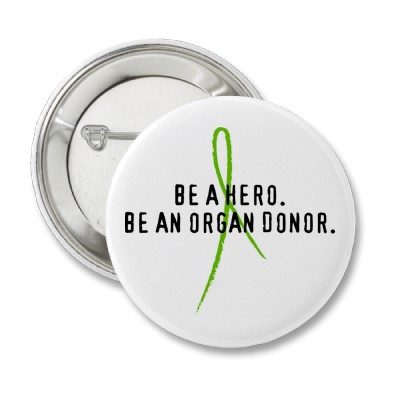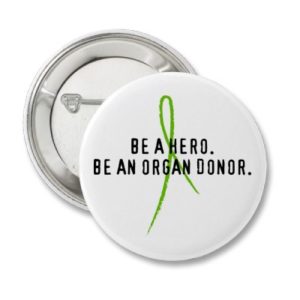Did you know…
• 95% of Americans are in favor of being a donor but only 54% are registered?
• 119,000 men, women and children await lifesaving organ transplants. Even the largest football stadium in the US could not fit the number of patients on the national transplant waiting list.
• Every 10 minutes another person is added to the national transplant waiting list.
• 8,000 deaths occur every year in the U.S. because organs are not donated in time.
• 22 people die each day waiting for an organ.
• 82% of patients waiting are in need of a kidney.
• 1 out of 3 deceased donors is over the age of 50.
• In 2016, 33,600 transplants brought new life to patients and their families.
• 683,000 transplants have taken place since 1988.
February 14th is National Donor Day, an observance day originally designated by the U.S. Department of Health and Human Services to raise awareness for organ, eye, tissue, marrow, platelet and blood donation.
Facts about Organ Donation
Truth: People of any age, even those with certain chronic medical conditions, may be organ, eye, or tissue donors.
Truth: People who are registered as organ donors receive the same patient care in hospitals as non-donors. Care doesn’t change if staff know you’re a donor. Doctors work to save the lives of all, equally.
Truth: The medical staff trying to save lives is completely separate from the transplant team. Every effort is made to save lives before donation is considered. Donation takes place only after the patient’s death.
Truth: Most major religions in the United States support the gift of life as an act of charitable giving and do not prohibit organ and tissue donation.
Truth: Organ donation won’t interfere with having an open-casket funeral. Organs are removed surgically with the same respect and dignity as in other surgical operations.
Truth: The estate or family of organ, eye, or tissue donors incurs absolutely no cost for donation.
Seniors are Encouraged to Sign Up
Organ, eye, and tissue donation are the greatest gifts anyone, of any age, can give. Here are just a few reasons why:
• There is a tremendous need.
• Over 99 million individuals in the United States are aged 50 and over. If the majority of people in this age group signed up, imagine how many more lives could be saved!
• Today, the heart, liver, kidneys, pancreas, lungs, and small intestine can all be transplanted into individuals whose own organs are failing.
• Tissue donors can improve the lives of many more people by donating corneas, heart valves, veins, tendons, bone, and skin.
• Your age doesn’t make you ineligible to sign up, nor do you have to be in perfect health. Your ability to donate is determined at the time of death.
• Research shows that organs from older donors can be used effectively to save lives.
•Knowing that lives have been saved by a loved one’s donation has helped many donor families deal with their grief.
How Can I Become an Organ Donor?
1. Go online to organdonor.gov. Click on “Sign up to be an organ donor.” Choose your state from the drop down menu to find specific information on how to register to be an organ donor. Requirements differ for each state, so it’s important to make sure you follow the instructions carefully.
2. Designate on your driver’s license. You can also designate your decision on your driver’s license when you obtain or renew your license (or photo I.D.). In many states doing this will place you on the donor registry.
3. Tell your family. Be sure to tell your family members so they can support your wishes when the time comes.
You can make a difference today. Registering to be an organ, eye, and tissue donor is one of the finest and most unselfish humanitarian actions you can take. Why not take time now to declare your wish to give the gift of life?
www.donatelife.net







